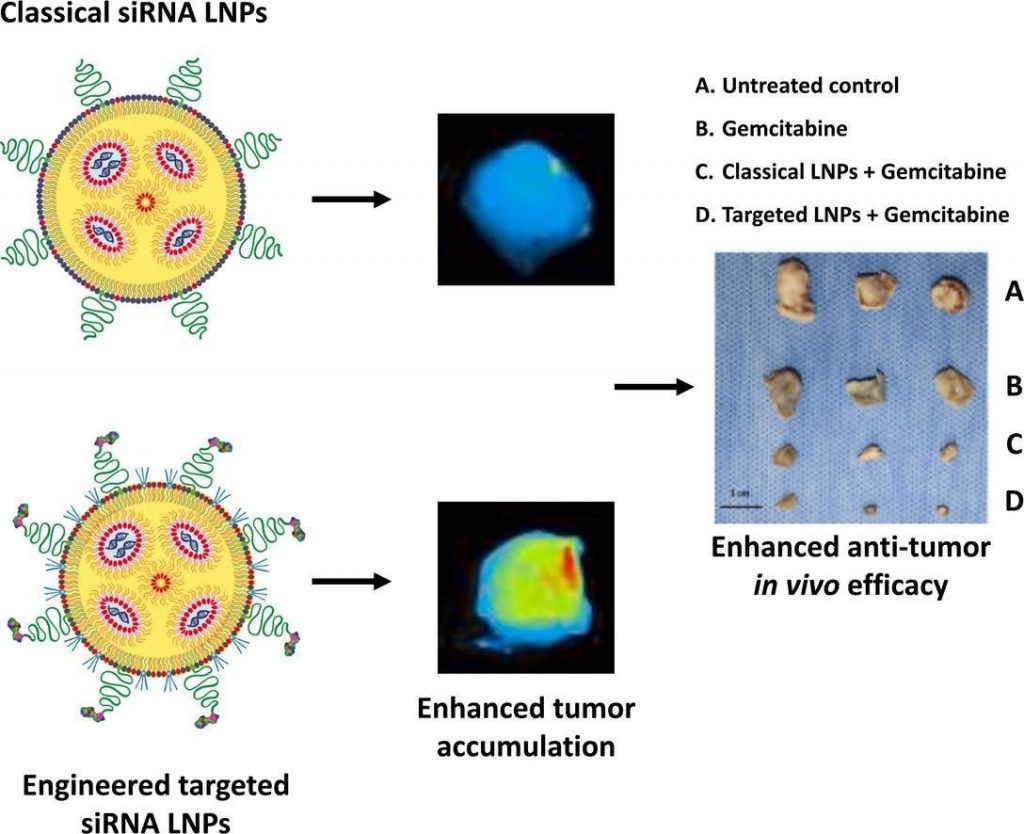- Publication:Shubaash Anthiya, Süleyman Can Öztürk, Hamdullah Yanik, Ece Tavukcuoglu, Adem Şahin, Dhrubajyoti Datta, Klaus Charisse, David Moreira Álvarez, María Isabel Loza, Alfonso Calvo, Einar Sulheim, Simon Loevenich, Geir Klinkenberg, Ruth Schmid, Muthiah Manoharan, Güneş Esendağlı, Maria Jose Alonso,
Targeted siRNA lipid nanoparticles for the treatment of KRAS-mutant tumors, Journal of Controlled Release,
Volume 357, 2023, Pages 67-83, ISSN 0168-3659
Abstract
K-RAS is a highly relevant oncogene that is mutated in approximately 90% of pancreatic cancers and 20–25% of lung adenocarcinomas. The aim of this work was to develop a new anti-KRAS siRNA therapeutic strategy through the engineering of functionalized lipid nanoparticles (LNPs). To do this, first, a potent pan anti-KRAS siRNA sequence was chosen from the literature and different chemical modifications of siRNA were tested for their transfection efficacy (KRAS knockdown) and anti-proliferative effects on various cancer cell lines. Second, a selected siRNA candidate was loaded into tLyp-1 targeted and non-targeted lipid nanoparticles (LNPs). The biodistribution and antitumoral efficacy of selected siRNA-loaded LNP-prototypes were evaluated in vivo using a pancreatic cancer murine model (subcutaneous xenograft CFPAC-1 tumors). Our results show that tLyp-1-tagged targeted LNPs have an enhanced accumulation in the tumor compared to non-targeted LNPs. Moreover, a significant reduction in the pancreatic tumor growth was observed when the anti-KRAS siRNA treatment was combined with a classical chemotherapeutic agent, gemcitabine. In conclusion, our work demonstrates the benefits of using a targeting approach to improve tumor accumulation of siRNA-LNPs and its positive impact on tumor reduction.
